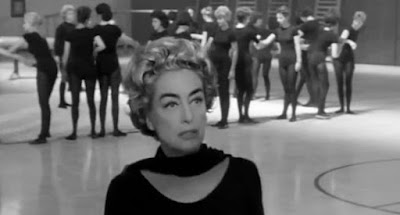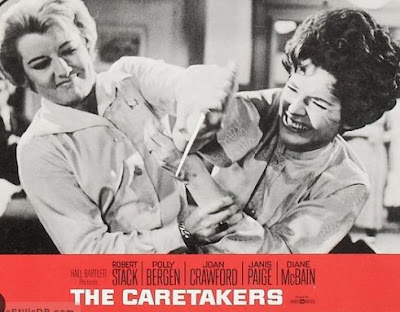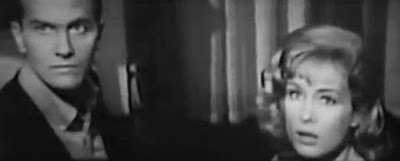 |
| Father Fermoyle (Tom Tryon) faces the KKK |
THE CARDINAL (1963). Produced and directed by Otto Preminger.
At his birth it was decided that Stephen Fermoyle (Tom Tryon of The Unholy Wife) would become a priest, and he never questioned it. Seen as being too ambitious by Bishop Glennon (John Huston), Fermoyle is sent to one of the poorest parishes in the nation, where he works with the dying Father Halley (Burgess Meredith). Not certain that he wants -- or ever wanted -- to be a priest, he takes a leave of absence and falls in love with the Austrian woman Annemarie (Romy Schneider) and vice versa, but his faith is reignited and he remains in the priesthood. As he advances at the Vatican due to the patronage of Cardinal Quarenghi (Raf Vallone), he jeopardizes his career by helping a black priest, Father Gillis (Ossie Davis), in Georgia and comes afoul of whip-wielding members of the Ku Klux Klan. Later he goes to Vienna to consult with Cardinal Innitzer (Joseph Meinrad), who has capitulated to the Nazis but is betrayed by them. He manages to escape an attack on Innitzer's quarters and with most of his family present is made a cardinal.
 |
| Raf Vallone with Tom Tryon |
Over three hours long,
The Cardinal -- which spans WW1 up to the beginnings of WW2 and the rise of Hitler -- is never boring. I only watched the film because I was curious how actor-turned-novelist Tom Tryon would handle such a demanding lead role, and he comes through with flying colors. Unfortunately,
The Cardinal was a financial flop, and that adversely affected his career. One of the film's greatest strengths is the performances of the entire cast, although John Huston, despite some solid moments, is as uneven in this as he was in
The Other Side of the Wind. Carol Lynley makes her mark as Stephen's sister, who falls in love with a Jewish man, well-played by John Saxon. Broadway star Bill Hayes is also effective as Stephen's brother, Frank, as is Dorothy Gish as their mother. Others in the cast include Patrick O'Neal as a southern bigot, Murray Hamilton as one of the racist group who tries to help Stephen, Chill Wills as a bishop, and Bobby Morse (appearing with the Adora-Belles) as the main performer in a spirited nightclub act.
 |
| Joseph Meinrad with Tryon |
One problem with the film is that apparently some scenes had to be left on the cutting room floor, or perhaps were never filmed. The resolutions of storylines involving the sister and her fiance, as well as Annemarie in Nazi-controlled Vienna, are left dangling. Some scenes, such as a confrontation between Stephen and his sister's Jewish fiance after a tragic occurrence, cry out to be recorded but are never shown. On the other hand, there are some powerful moments, such as a chorus of Catholics in Vienna attracting the negative attention of the SS and Hitler Youth, forming a startling contrast, and the sequences when Nazis storm Cardinal Innitzer's quarters, which actually happened. Joseph Meinrad [
Sissi: The Young Empress] is excellent as the cardinal, who was a real-life individual.
 |
| Brothers: Tom Tryon with Bill Hayes |
The Cardinal does something unusual in that it depicts the Nazi persecution of Catholics. Although ordinary members of the clergy (Protestants as well as Catholics) were sent to concentration camps or killed, higher-ranking clergy were generally left alone so as not to become martyrs. In any case, this doesn't compare to the persecution of Jews, whose ordinary citizenry were slaughtered in appalling numbers. Annemarie's husband has Jewish blood, and comes to a bad end, but otherwise
The Cardinal doesn't really deal with antisemitism, another serious flaw of the film. Despite the fact that the film was partially bankrolled by the Vatican (the church's liaison later became Pope Benedict XVI), it is made clear that the church didn't really want to get involved in civil rights, let alone in the troubles of the Jews.
Whatever its flaws, The Cardinal boasts a beautiful, expressive score by Jerome Moross [The Big Country] and superb cinematography courtesy of Leon Shamroy [The Robe] .
Verdict: I am not remotely Catholic but I enjoyed this movie -- the religiosity never quite becomes overbearing, it is great to look at, and much more interesting than you might imagine, with a great cast. ***.















































